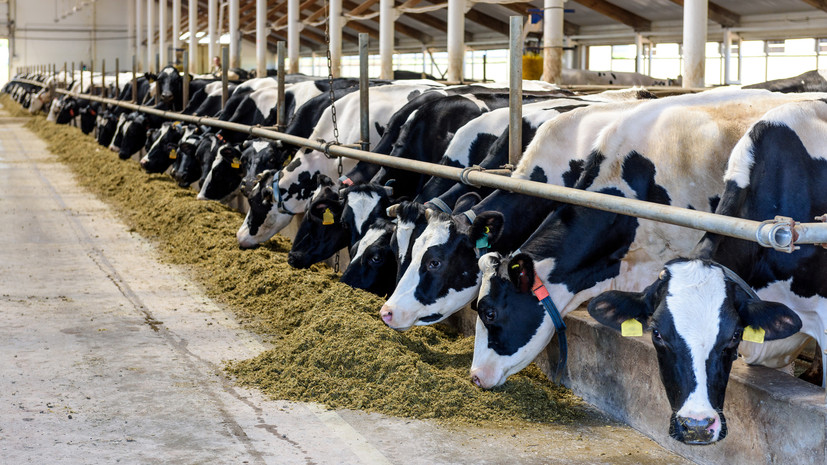Russian scientists from the Volga Research Medical University (PIMU), with the support of the Nizhny Novgorod world-class scientific and educational center (REC), have developed a feed additive to the diet of cows, which reduces the production of methane by animals by almost a third, and also increases milk yield and milk quality. This was reported to RT by the Ministry of Education and Science.
Recall that according to UN experts, animal husbandry forms 14.5% of the total global volume of anthropogenic greenhouse gas emissions, of which 44% is methane. Most greenhouse gases are produced by cattle - its "contribution" is 65%.
"Cattle produce 250-500 liters of methane per day, which affects global warming. Therefore, the development of methods to reduce methane emissions by ruminants is an urgent task of science and practice, "Timur Khalitov, director of the Nizhny Novgorod REC, explained to RT.
- Gettyimages.ru
- © Andrey Rudakov/Bloomberg
The new feed additive is made from logging waste. To reduce the production of methane by 30% allow biologically active substances that inhibit the growth and development of bacteria - volatile, which are contained in wood.
"The use of the feed additive being developed will contribute to a shift in the structure of fermentation in the rumen, which will lead to inhibition (suppression. - RT) of the growth and vital activity of methanogenic bacteria, which means it will reduce the intensity of methane release, "explained Nikolai Karjakin, rector of PIMU, in a commentary to RT.
In addition, the additive improves the metabolism of animals, its constituent amino acids can increase the content of fats and proteins in milk by 10-15%, the authors note. As practice has shown, the use of the additive also increases the average daily milk yield by an average of 12%.
According to Russian scientists, the feed additive developed by them will cost agricultural enterprises 4-5 times cheaper than imported analogues. The additive is already used by livestock enterprises in Western Siberia, Perm, Udmurtia, the Ural Territory, the Crimea, Kazakhstan and Belarus.

